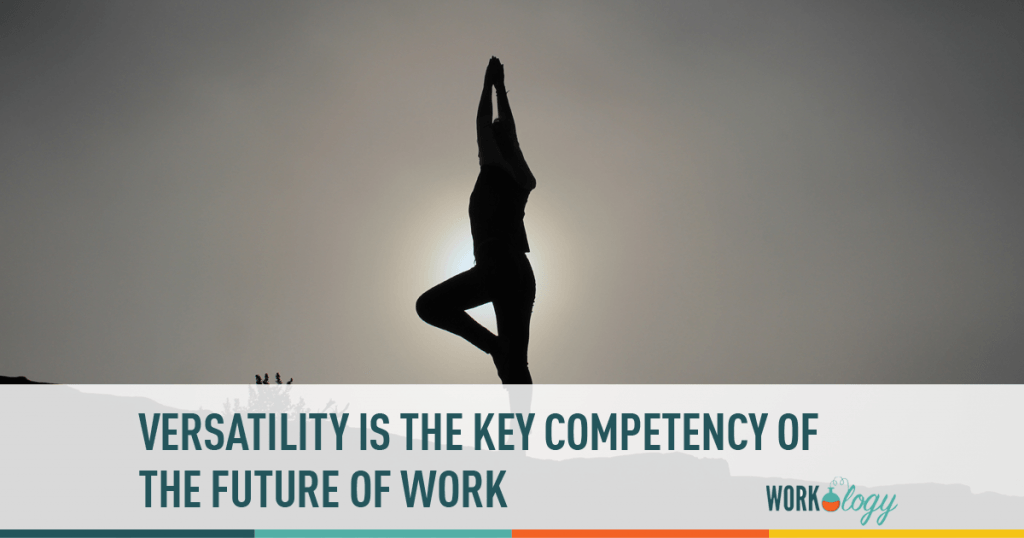According to futurist Thomas Frey, “By 2030 over 2 billion jobs will disappear.” That is only seventeen years from now. The big question is will your job be one of them? In all likelihood many jobs will disappear before then. How can you be prepared to deal with this? I think that versatility is the key competency of the future.
Versatility is the Key Competency of the Future
According to Dictionary.com the definition of versatility is “capable of or adapted for turning easily from one to another of various tasks, fields of endeavor, etc” Being versatile is going to be a major challenge for many. We get so used to doing something the way we have been doing it that we don’t consider other ways. Many of us don’t try to learn new ways or methods or even new fields of endeavor because it takes us out of our comfort zone. The problem becomes that when our skill set is no longer needed we are stuck and jobless, or at least not receiving the compensation we were once earning because we are working in some job that requires a lower skill level.
Those of you that plan on being in the workforce seventeen years from now need to know today that you are likely to be replaced by automation or the need for your skill set will just disappear. We had a taste of that in the recession. Companies let people go and then retooled with machinery and methods that did not require those employees when business improved. They needed different skill sets, more advanced skill sets.
Gaining Versatility
How do you become more versatile? To me versatility is not about just becoming better at what you do. It is about being able to do something you have not been able to do before. So here are some thoughts on what you can do:
First you must decide you can be and must be more versatile. There is research to show that you can change your brain by thinking, physically and structurally change your brain. So eliminate the excuse that “I am not smart enough.” (I will write more about this in future posts because this stuff fascinates me.)
Read. Read more to begin with but mostly you need to read DIFFERENT. Get out of that comfort zone. Reading stuff you have not read before will help you build different neural pathways and store different information.
Pay attention to where your profession is going. How is technology changing it? How is learning changing it? How are demographics changing it? This may mean you need to pay attention to some futurists. Or become your own futurist.
Think about yourself differently. Reid Hoffman, cofounder and executive chairman of LinkedIn Corporation, and author of The Startup of You said “Not only can anyone be an entrepreneur, but they must be.” Tom Peters and other authors have been saying it for a long time, but most people have not yet adopted this mindset.
Teach This and Have It Taught
If you have children that will be entering the workforce in that next 17 years you need to be working on preparing them NOW. Whatever you can do to get them to “think versatile” the better they will be prepared.
We also need to insist that in addition to “reading, writing, and arithmetic” schools need to help start preparing children for this need for versatility. Colleges and universities also need to heed this call.
Suggestions?
Many of you that read this are smarter than I am. How about offering some suggestions for others on how they may increase their versatility, and subsequently their employability in the future. Please leave a comment.
Sources:
Eight Shocking Quotes from 2012 that will Redefine Our Future, from The Futurist










Comments are closed.